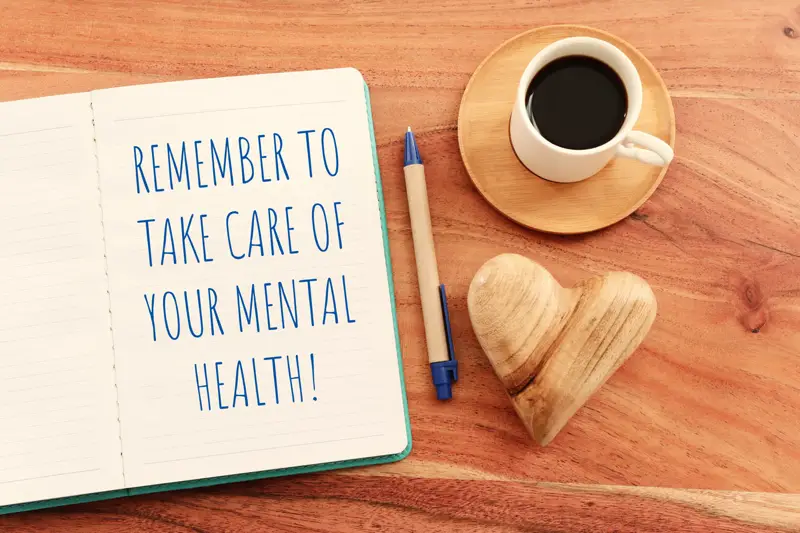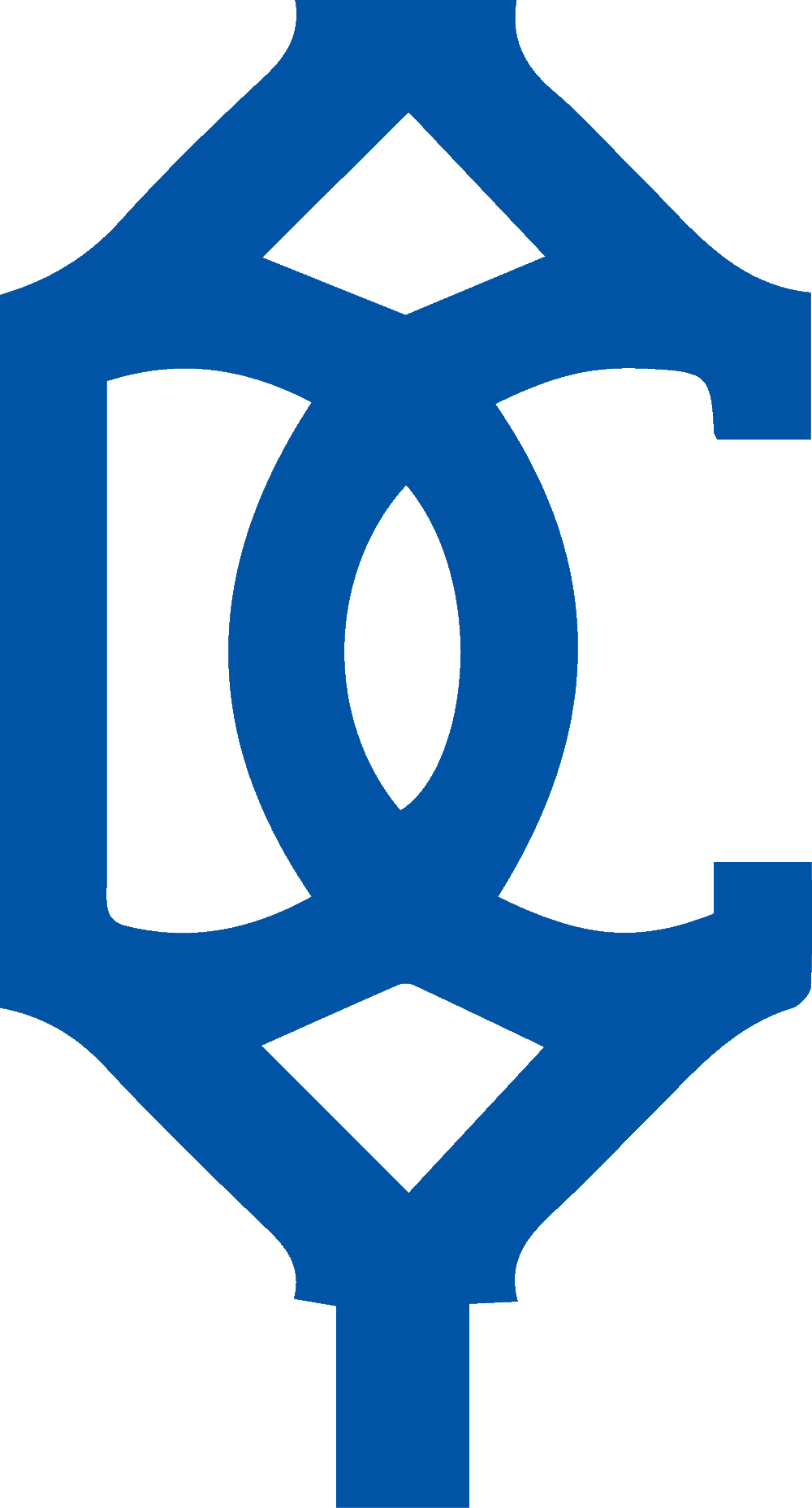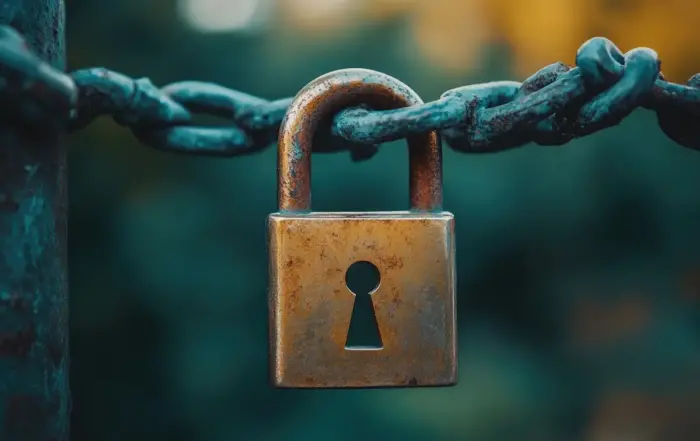Cocaine Addiction and Recovery
Cocaine addiction can have severe consequences on both physical and mental health, making recovery a challenging but necessary journey.
At Dilworth Center, we offer specialized treatment programs designed to help individuals overcome cocaine and crack addiction and achieve lasting recovery. Our experienced professionals use evidence-based practices to address the complex physical and psychological aspects of cocaine addiction. Located in Charlotte, NC, our center provides a supportive environment where patients can focus on their recovery. Whether you are struggling with the immediate effects of cocaine use or seeking long-term recovery solutions, Dilworth Center is here to guide you every step of the way. Explore our comprehensive cocaine recovery services and start your journey towards a healthier, sober life.
Understanding Cocaine Addiction
Cocaine Effects
Cocaine is a potent stimulant that significantly affects the brain and body. It elevates dopamine levels, causing intense feelings of euphoria, but also leading to hazardous physical and mental side effects. Extended use can lead to severe cardiovascular problems, respiratory issues, and neurological damage. Psychological effects may encompass anxiety, paranoia, and in some instances, psychosis. It is imperative to recognize the perils of cocaine use for those contemplating recovery.

The History of Cocaine Addiction
Cocaine’s history traces back thousands of years to ancient civilizations in South America, where the coca plant was revered for its stimulating properties. Indigenous peoples, particularly the Incas, chewed coca leaves to combat fatigue, hunger, and the effects of high altitudes. The coca leaves contain alkaloids, including ecgonine, which is the precursor to cocaine. The use of coca leaves was an integral part of religious ceremonies and daily life, seen as a sacred gift from the gods.

The Introduction of Cocaine to the Western World
Cocaine, the active stimulant derived from the coca plant, was first isolated in the late 1850s by German chemist Albert Niemann. He identified and named cocaine after extracting it from ecgonine found in coca leaves. By the late 19th century, cocaine began to gain popularity in the Western world as a miracle drug. Prominent figures like Sigmund Freud endorsed its use for treating various ailments, including depression and addiction to morphine, which led to its widespread medical and recreational use.
Early Instances of Abuse and Negative Effects
The dangers of cocaine soon became apparent as cases of abuse and addiction began to rise. In the late 19th and early 20th centuries, cocaine was a common ingredient in tonics, elixirs, and even beverages like Coca-Cola, which originally contained small amounts of the drug. The stimulant effects of cocaine were initially celebrated, but as its use became more widespread, reports of severe addiction, mental health issues, and physical deterioration began to surface.
One of the earliest documented instances of cocaine addiction involved Dr. William Halsted, a pioneering American surgeon who became addicted to cocaine after using it as an anesthetic. His case highlighted the drug’s potential for addiction, even among medical professionals. By the early 20th century, the negative effects of cocaine were undeniable. The drug was linked to severe psychological issues, including paranoia, hallucinations, and violent behavior.


The Rise of Crack Cocaine
Cocaine use saw a resurgence in the 1970s and 1980s with the introduction of crack cocaine. Crack, a cheaper and more potent form of cocaine, led to a new epidemic of addiction, particularly in urban areas. The effects of crack were devastating, leading to intense highs followed by severe crack comedowns that fueled compulsive use and rapid addiction. The long-term effects of crack use became well-documented, with chronic users suffering from severe cardiovascular issues, respiratory problems, and significant neurological damage.
Modern Efforts to Combat Cocaine Addiction
Today, both cocaine and crack addiction remain significant public health challenges. A modern understanding of what crack does and its side effects has led to more targeted interventions and treatment programs. Awareness of cocaine overdose symptoms has also increased, driving the development of comprehensive recovery programs like those offered at Dilworth Center.
The history of cocaine and crack addiction, from its ancient origins to the modern-day crisis, underscores the importance of seeking professional help. The dangers of cocaine have been documented for over a century, highlighting the need for effective treatment for those struggling with addiction.

Symptoms of Cocaine Addiction
Identifying cocaine and crack addict symptoms involves recognizing both physical and behavioral signs. Common symptoms include intense cravings, compulsive drug-seeking behavior, and continued use despite negative consequences. Physical symptoms may include rapid heart rate, dilated pupils, and significant weight loss. Behavioral symptoms often involve risky behavior, financial problems, and relationship issues. Recognizing crack addict symptoms is the first step in seeking effective treatment.
The Recovery Journey
Recovery is Possible
Recovery from cocaine addiction is challenging, but with the right support, it is possible. At Dilworth Center, we offer comprehensive treatment programs tailored to each individual’s needs. Our approach includes a combination of therapy, education, and support to help individuals overcome their addiction and build a foundation for long-term recovery.

Recovery Expectations
Recovering from cocaine addiction is a challenging process that involves several stages, each with its own set of physical and mental symptoms. Understanding what to expect during recovery can help individuals and their loved ones prepare for the journey ahead. Here’s a detailed look at what you may experience during the recovery process from cocaine addiction:

The First 30 Days : Cocaine Detox and Initial Adjustment
Typically, patients do not require a medical detox from cocaine. However, on rare occasions, this may be necessary. Please contact Dilworth Center to learn more about cocaine detox.
Physical Symptoms:
The first stage of recovery often begins with detoxification, where the body starts to eliminate cocaine from its system. This period can be physically demanding. Common physical symptoms during cocaine detox include fatigue, increased appetite, and a slowed heart rate. These symptoms result from the body’s effort to adjust to the absence of the drug. Many individuals also experience coke comedown, a state of physical exhaustion, restlessness, and overall malaise that follows the initial withdrawal from cocaine. Headaches, muscle aches, and tremors are also common during the first few days of detox.
Mental Symptoms:
Mentally, individuals may experience intense cravings for cocaine, which can be difficult to manage. Cocaine withdrawal can lead to significant mood swings, anxiety, and depression, often referred to as the “crash.” This period may also involve feelings of irritability, agitation, and paranoia. In some cases, individuals might experience vivid and disturbing dreams, contributing to restless sleep or insomnia. The mental toll of cocaine withdrawal is substantial, as the brain struggles to adjust to the sudden absence of the drug’s stimulating effects.

Days 31-90: Building a Foundation for Cocaine Recovery
Physical Symptoms:
As detox progresses, some physical symptoms begin to subside, but the body’s recovery is ongoing. Individuals might still feel lingering fatigue and a strong desire for sleep. The body is gradually repairing itself, but some may experience lingering tremors or shakiness as their nervous system stabilizes.
Mental Symptoms:
During this phase, the focus shifts towards rebuilding mental and emotional stability. Cravings for cocaine may persist but usually decrease in intensity as the brain begins to heal. However, the psychological impact of withdrawal can still be strong. Individuals may experience ongoing depression, anxiety, and feelings of emptiness or anhedonia (the inability to feel pleasure). Cognitive behavioral therapy (CBT) and other therapeutic interventions are crucial during this period to help manage these symptoms. Addressing the psychological root causes of addiction, such as unresolved trauma or mental health issues like depression and anxiety, is also essential.

Days 90-180: Strengthening Cocaine Recovery Skills
Physical Symptoms:
By this stage, most of the acute physical symptoms have subsided, but the body is still in recovery mode. Individuals may begin to feel more physically capable and start engaging in regular physical activities, such as exercise, which can help in the recovery process. However, there may still be challenges, such as managing energy levels and rebuilding muscle strength after a period of inactivity.
Mental Symptoms:
Mentally, this phase focuses on developing coping strategies and relapse prevention techniques. While cravings for cocaine may continue to appear sporadically, they generally decrease in frequency and intensity. Individuals may also experience periods of emotional instability as they navigate life without the drug. It’s common to face triggers that could lead to relapse, making it essential to have a solid support system in place. Therapy continues to play a vital role in strengthening mental health and teaching individuals how to manage stress, anxiety, and depression without resorting to substance use.

Days 180-365: Achieving Long-Term Goals
Physical Symptoms:
By the time individuals reach this stage, most physical symptoms of withdrawal are significantly reduced or completely gone. The body has largely adjusted to life without cocaine, and many individuals feel healthier and more energetic. Maintaining physical health through regular exercise, a balanced diet, and sufficient sleep is essential for ongoing recovery.
Mental Symptoms:
Mentally, individuals are now focused on sustaining long-term sobriety and achieving personal goals. This phase is about solidifying the progress made in earlier stages of recovery. While occasional cravings might still occur, they are typically manageable with the strategies developed during therapy. Many individuals find that their mood stabilizes, and they begin to experience more joy and fulfillment in everyday activities. However, vigilance is still necessary, as stress and unexpected life events can trigger a desire to use cocaine again.
Beyond the First Year
Long-Term Physical Symptoms:
Even after a year of sobriety, the body and brain continue to heal. Long-term recovery may involve addressing any lingering health issues caused by chronic cocaine use, such as cardiovascular problems or respiratory issues. Regular medical check-ups and maintaining a healthy lifestyle are crucial to ongoing physical recovery.
Long-Term Mental Symptoms:
Psychologically, the focus shifts to maintaining mental health and preventing relapse. Ongoing participation in therapy, support groups, and other recovery programs helps reinforce sobriety. It’s important to stay connected with a support network and to continue using the coping strategies learned in therapy. The brain’s dopamine system, which was heavily impacted by cocaine use, gradually recovers, leading to improved mood regulation and a greater capacity for experiencing pleasure.
By understanding and preparing for the physical and mental challenges of cocaine recovery, individuals can navigate the process more effectively. At Dilworth Center, we provide the comprehensive support needed at every stage of recovery, helping individuals achieve and maintain a healthy, drug-free life.

My Family Member is Addicted to Cocaine, What Do I Do?
Family Support
Supporting a family member through cocaine addiction can be overwhelming, but family involvement is crucial for successful recovery. Learning about cocaine addiction, participating in family therapy, and offering consistent support can make a significant difference. At Dilworth Center, we offer programs that involve the entire family in the recovery process, providing the tools needed to support your loved one effectively.

Dilworth Center Services
Recovering from Cocaine Addiction with Dilworth Center
At Dilworth Center, we offer personalized addiction treatment for individuals struggling with cocaine addiction. Our evidence-based programs, including Intensive Outpatient Programs (IOP), individual counseling, group therapy, and family support services, address both the physical and psychological aspects of addiction. Our experienced team is committed to guiding you through every step of the recovery process. Whether for yourself or a loved one, we are here to help you achieve lasting sobriety.

Take the First Step Toward Lasting Cocaine Recovery
Are you ready to overcome cocaine addiction? Our expert team at Dilworth Center is here to support you on your path to sobriety. Discover personalized treatment plans that empower long-term recovery. Don’t wait—reach out today and start your journey toward a healthier, cocaine-free life.

Dilworth Center Treatment Programs for Cocaine Addiction

Adult Intensive Outpatient Program (IOP) for Cocaine
Dilworth Center’s Adult Intensive Outpatient Program (IOP) is specifically designed for individuals struggling with cocaine addiction who need comprehensive treatment without the constraints of residential care. Our adult rehabilitation center offers a structured, supportive environment where patients can receive intensive therapy while continuing to live at home and maintain their daily responsibilities.
As a nonprofit, CARF-accredited center with over 35 years of service, Dilworth Center provides outpatient treatment rooted in evidence-based care. This includes cognitive-behavioral therapy (CBT), motivational interviewing, and group therapy sessions, all aimed at addressing the psychological aspects of cocaine addiction. Our outpatient addiction rehab also includes relapse prevention strategies, helping patients build the skills necessary to maintain long-term sobriety.
Located in the heart of Charlotte, NC, Dilworth Center’s Adult IOP is easily accessible and offers a comprehensive approach to recovery. Whether you are beginning your journey to recovery or need ongoing support, our program is designed to help you overcome addiction and achieve lasting wellness.

Young Adult Intensive Outpatient Program (IOP) for Cocaine
Dilworth Center’s Young Adult Intensive Outpatient Program (IOP) is specifically tailored to meet the unique needs of young adults struggling with cocaine addiction. Our program provides a supportive and structured environment that allows young adults to engage in effective treatment while maintaining their daily activities, such as work or school.
Our drug rehabilitation for young adults focuses on addressing both the physical and psychological aspects of addiction, helping participants develop healthy coping mechanisms and build a foundation for long-term recovery. The young adult rehab program includes individual counseling, group therapy, and peer support, creating a community where young adults can connect with others who understand their challenges.
As one of the top young adult drug treatment centers in Charlotte, NC, we offer comprehensive care that is specifically designed to support the unique challenges faced by young adults in recovery. Our goal is to help each participant achieve and maintain sobriety while also preparing them for a successful and fulfilling future.

Adolescent Intensive Outpatient Program (IOP) for Cocaine
For teenagers struggling with cocaine addiction, the Adolescent Intensive Outpatient Program (IOP) at Dilworth Center offers a specialized approach to recovery. This program provides a structured and supportive environment where adolescents can receive comprehensive care while continuing with their education and daily activities.
Our drug rehabilitation for teenagers focuses on addressing the specific needs of young individuals, offering a blend of individual therapy, group sessions, and family involvement. This holistic approach ensures that each teen receives the personalized care they need to overcome addiction. The teenager rehab program at Dilworth Center emphasizes the development of healthy coping strategies, emotional regulation, and life skills that are crucial for long-term recovery.
As a leading center of rehabilitation for teens, Dilworth Center is dedicated to helping young people build a strong foundation for a sober future. By engaging in our Adolescent IOP, teenagers receive the support and guidance needed to navigate the challenges of addiction and emerge with a renewed sense of purpose and direction.

Family Program
Recognizing the vital role that family plays in the recovery process, our Family Program is designed to provide the support and education necessary for families dealing with a loved one’s cocaine addiction. We offer family addiction support that helps families understand the dynamics of addiction and how to best support their loved one’s recovery journey.
Our program includes family addiction therapy, where experienced therapists work with families to improve communication, rebuild trust, and address any emotional wounds caused by addiction. Through these sessions, families learn how to create a healthy and supportive environment that promotes long-term sobriety.
Whether you’re seeking the guidance of a family addiction therapist or looking for resources to help your family navigate the challenges of addiction, Dilworth Center’s Family Program is here to help. By involving the whole family in the recovery process, we aim to strengthen relationships and provide the tools needed for sustained recovery and healing.

Mental Health Program (Dual Diagnosis)
Understanding that mental health and addiction often go hand in hand, our Mental Health Program is specifically designed to address the complexities of dual diagnosis. For individuals struggling with both cocaine addiction and underlying mental health issues, our program provides integrated care that treats both conditions simultaneously.
At Dilworth Center, we are recognized as one of the leading dual diagnosis treatment centers in Charlotte, NC. Our comprehensive approach ensures that patients receive the necessary support to manage their mental health while also addressing their addiction. We utilize evidence-based therapies to create personalized treatment plans that cater to each individual’s unique needs.
As a top dual disorder treatment center, we offer specialized care for those dealing with co-occurring disorders. Our dual diagnosis addiction treatment centers focus on helping patients develop effective coping strategies, manage their mental health symptoms, and build a foundation for long-term recovery. Our experienced team is committed to providing care that empowers individuals to achieve and maintain sobriety.

Cocaine Relapse Prevention Program
Preventing relapse is a critical component of maintaining long-term sobriety, especially after overcoming cocaine addiction. Our Relapse Prevention Program is designed to equip individuals with the tools and strategies necessary to sustain their recovery.
At Dilworth Center, we work closely with patients to develop personalized relapse prevention plans that address their unique triggers and challenges. These plans are built around evidence-based relapse prevention strategies, which include identifying high-risk situations, developing healthy coping mechanisms, and creating a strong support network.
Our relapse prevention therapy sessions provide ongoing support and guidance, helping individuals stay focused on their recovery goals. Whether you’re newly sober or have been in recovery for some time, our program is designed to reinforce your commitment to a drug-free life. By participating in our Relapse Prevention Program, you’ll gain the confidence and skills needed to navigate life’s challenges without turning back to substance use.










